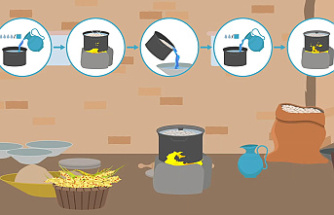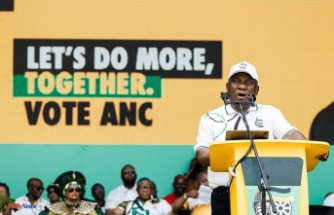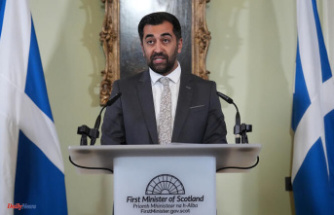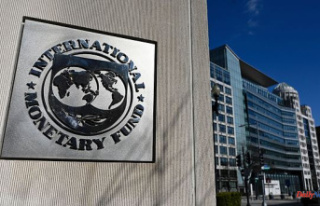If Kremlin chief Vladimir Putin continues to turn off the gas tap in Germany, it is primarily a tit-for-tat for the EU's sanctions against Russia's war in Ukraine. Moscow claims that there are no political reasons for reducing the amount of gas going to Germany. But even Russian commentators are now calling on their own leadership to play with open cards: After all, the EU and the USA were trying to destroy Russia's economy with the sanctions. So it is only legitimate to use the gas of the resource superpower as an instrument of sanctions in this economic war in order to harm the West.
"Why is the cutting off of the gas for the EU being brought up as such a technical comedy and not as a direct sanction in order to respond to the West along the same lines," said the newspaper "Kommersant" on Tuesday. It is obvious to everyone that the state-owned company Gazprom only lists the number of gas turbine repairs for the Baltic Sea pipeline Nord Stream 1 in order not to allow the important filling of gas storage facilities in Europe until winter.
After all, Moscow clearly blamed the problems with the gas turbines on the sanctions. "If these restrictions did not exist, all repair, warranty and service work would be carried out in the usual, routine, operational order," said Kremlin spokesman Dmitry Peskov. He expects a gas turbine repaired in Canada and cleared despite the sanctions to come back and be installed soon. But it is also clear that Russia is more interested in relaxing the sanctions overall.
There are corresponding attempts in a large number of areas, which is why the power apparatus in Moscow is sometimes accused of attempted blackmail. In the debate about food prices and world hunger, President Putin demanded that there be a "package solution." Russia, for example, declared its willingness to let millions of tons of grain from Ukraine by sea to the world market with the mediation of the United Nations. In return, the Kremlin demanded that UN Secretary-General António Guterres personally campaign internationally to ensure that Russia could once again export grain, food and fertilizers unhindered.
Like Ukraine, Russia also wants to earn billions from this export. But the power apparatus in Moscow complained that the sanctions were affecting shipping and financial transactions and were therefore hampering business.
And as far as the gas turbine is concerned, Gazprom wants an EU document to rule out any risk of sanctions for future maintenance of the turbines. According to the report by Kommersant, the central gas compression station "Portovaya" has a total of nine units consisting of turbines and compressors. At the moment only two machines are in operation; in normal operation there are five plus one reserve.
From the Western point of view, Russia's attempts at blackmail are doomed to fail. In Brussels, it has been repeatedly emphasized for weeks that the sanctions will not be eased as long as Putin does not end the war against Ukraine. Decisions interpreted by Moscow as concessions are therefore only clarifications — for example, to straighten out imprecisely worded sanctions decisions under time pressure.
For example, against the background of Russian accusations, an EU resolution last Thursday stated that no sanctions would be "in any way directed against trade in agricultural products and foodstuffs, including wheat and fertilizers, between third countries and Russia". . Specifically, it is regulated that transactions required for purchase, import and transport are permitted. In addition, for example, Russian merchant ships transporting agricultural products and foodstuffs may continue to use ports in the EU.
It was also clarified that the sanctions against the Russian aviation industry do not affect the exchange of information used to set technical standards within the International Civil Aviation Organization. Even if Russian propaganda sometimes sees it that way: the West is not giving in or the punitive measures are being relaxed.
In Brussels and Berlin, it is also completely out of the question to bow to pressure from Moscow and, for fear of a gas supply crisis, to issue an operating license for the Nord Stream 2 gas pipeline. Federal Minister of Economics Robert Habeck said on Tuesday in Brussels: "Approving Nord Stream 2 would increase our dependence on Russian gas again — the opposite of what we have been doing here for the past six months — and with it, of course, capitulation with all the sanctions we have in place."
According to the Green politician, the agreement reached on Tuesday on a gas emergency plan shows that Europe is ready to save so that it does not allow itself to be blackmailed by Russia and that it is not possible to break up solidarity over the skyrocketing gas prices. "Europe cannot be divided," said Habeck.












